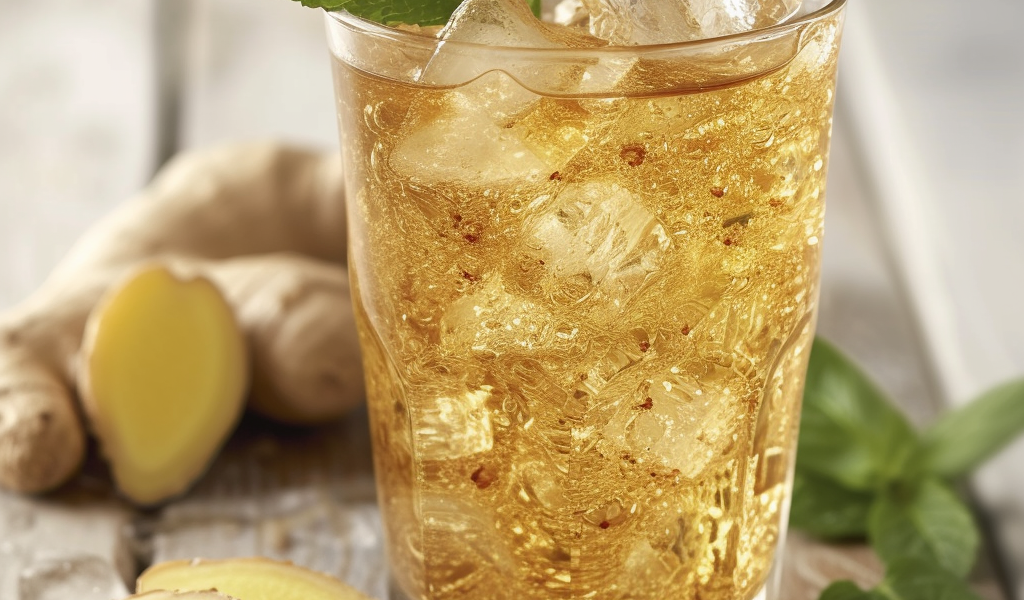Does ginger ale actually have health benefits, or is it a myth we’ve been buying into?
If you had an upset stomach when you were a kid, there was one home remedy that parents, grandparents and other caregivers seemed to recommend time and time again: ginger ale.
In fact, I was still turning to ginger ale for its supposed stomach-soothing properties well into adulthood, including when I was dealing with morning sickness while pregnant with my son.
But does ginger ale actually have health benefits? Or is it a myth that many of us have been buying into for way too long? We talked to dietitians and a gastroenterologist to set the record straight.
Here’s how the whole thing started.
Ginger ale likely became known as a stomach settler due to its association with ginger. Since ancient times, ginger root has been used as an herbal remedy to treat different gastrointestinal ailments, including nausea, diarrhea and indigestion. And there are some studies to back this up.
“Ginger root contains a special compound called gingerol that has been shown to support gastrointestinal motility, or the rate that food moves through the digestive tract,” explained Stefani Sassos, a registered dietitian and the nutrition and fitness director for the Good Housekeeping Institute. “This can provide nausea relief for a variety of conditions, essentially because it encourages food to not linger as long in the digestive tract.”
But it’s important to note that these benefits are specifically associated with actual ginger root — not just the ginger flavoring found in many sodas.
“Most commercial ginger ale contains very little to no actual ginger,” Sassos said.
In recent years, false advertising lawsuits have been filed against the company that makes Canada Dry ginger ale in the U.S. and Canada over claims that the product is “made from real ginger,” as it states on the packaging.
These claims “deceive and mislead reasonable customers into believing that [Canada Dry is] made using ginger root — i.e. the spice made by chopping or powdering the root of the ginger plant — and not minuscule amounts of flavoring ‘extracts,’” one of the lawsuits alleged, as reported by the National Post.
The class action suits in both countries have since been settled. As part of the U.S. settlement, the company agreed to remove the words “made from real ginger” from its marketing in the future. However, the product is still marketed this way in Canada.
Ginger ale could actually do more harm than good.
Gastroenterologist Dr. Lukasz Kwapisz, of Gastro Health in Miami, explained that the high sugar content in ginger ale and other sodas — usuall





